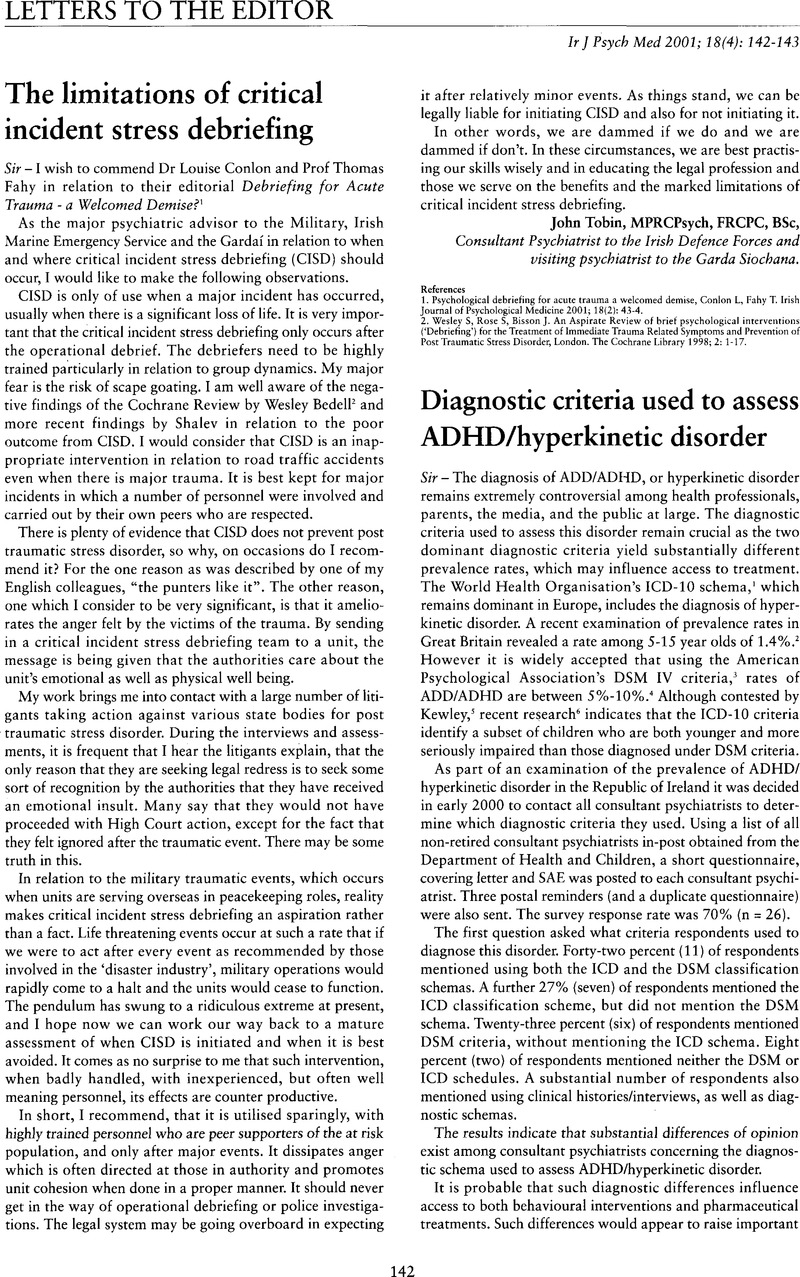No CrossRef data available.
Article contents
Diagnostic criteria used to assess ADHD/hyperkinetic disorder
Published online by Cambridge University Press: 13 June 2014
Abstract
An abstract is not available for this content so a preview has been provided. As you have access to this content, a full PDF is available via the ‘Save PDF’ action button.

- Type
- Letters to the Editor
- Information
- Copyright
- Copyright © Cambridge University Press 2001
References
1.World Health Organisation. The ICD-10 classification of mental and behavioural disorders: diagnostic criteria. Geneva: WHO, 1993.Google Scholar
2.Meltzer, H, Gatward, R, Goodman, R, Ford, T. Mental health of children and adolescents in Great Britain. London: The Stationery Office, 2000.CrossRefGoogle Scholar
3.American Psychiatric Association. Diagnostic and Statistical Manual of Mental Disorders. 4th ed. Washington, DC: Am Psychiatric Association, 1994.Google Scholar
4.Morgan, AM. Attention-Deficit/Hyperactivity Disorder. Preface. Pediatr Clin North Am 1999; 46(5): xi–xii.CrossRefGoogle Scholar
5.Kewley, GD. Personal paper: Attention deficit hyperactivity disorder is underdiagnosed and undertreated in Britain. BMJ 1998; 316: 1594–6.CrossRefGoogle ScholarPubMed
6.Tripp, G, Luk, SL, Schaughency, EA, Singh, R. DSM-IV and ICD-10: A comparison of the correlates of ADHD and Hyperkinetic Disorder. J Am Acad Child Adolesc Psychiatry 1999; 38(2): 157–164.CrossRefGoogle ScholarPubMed




